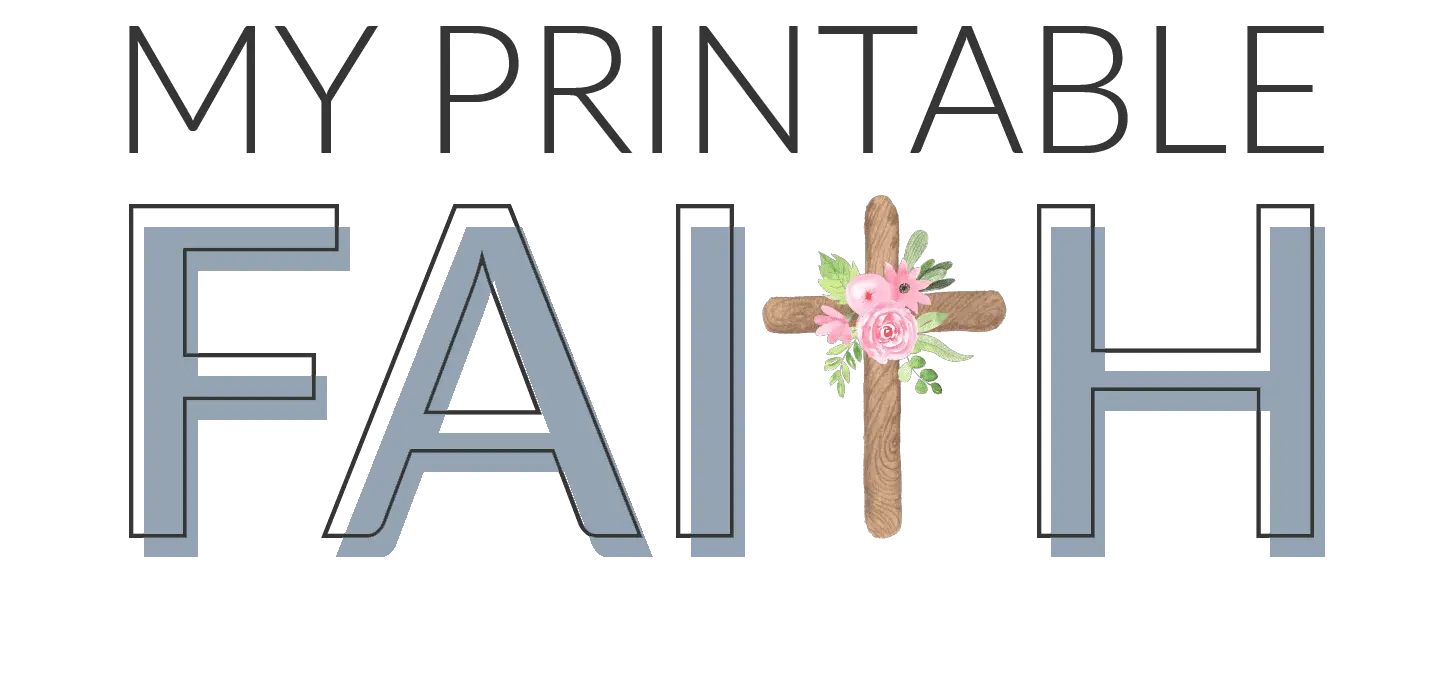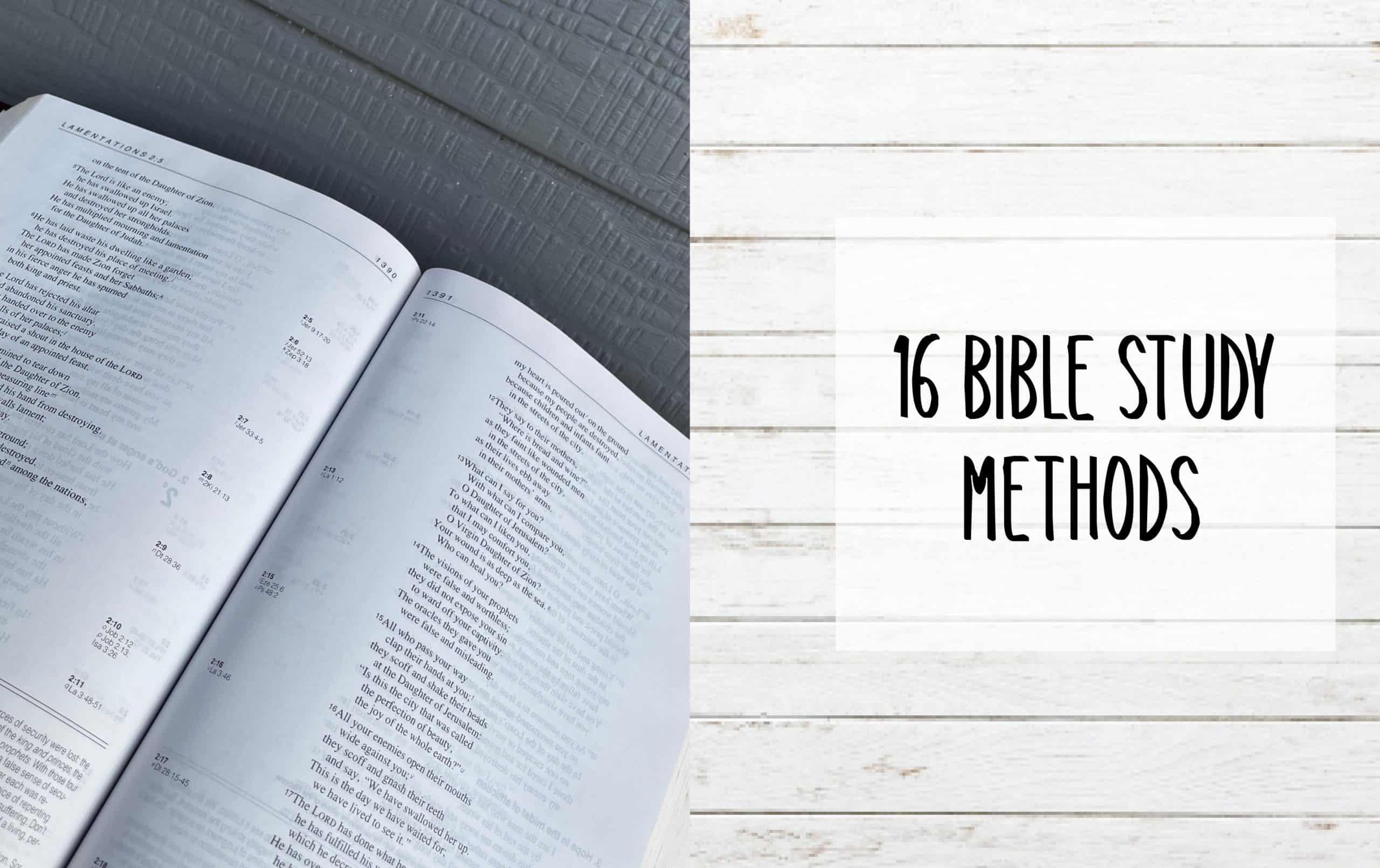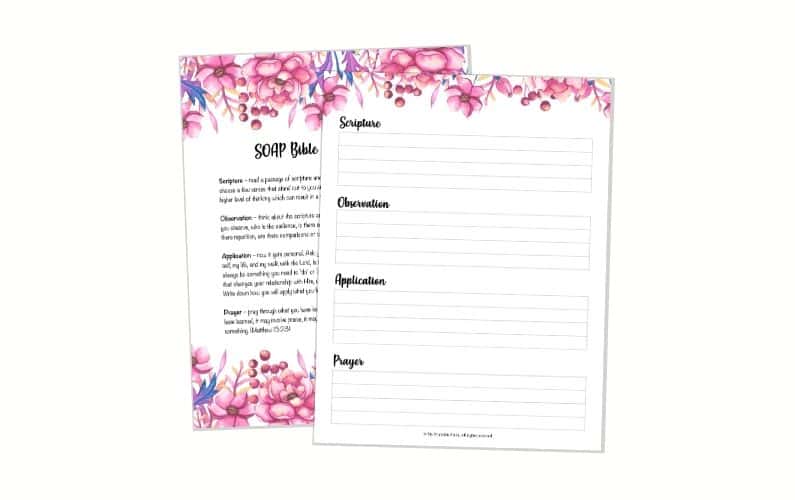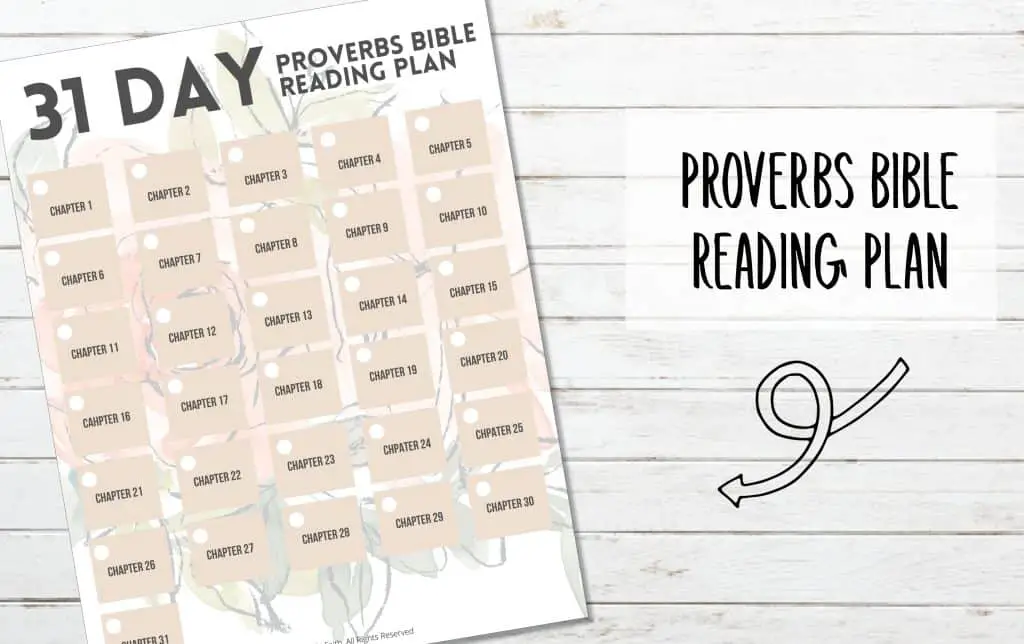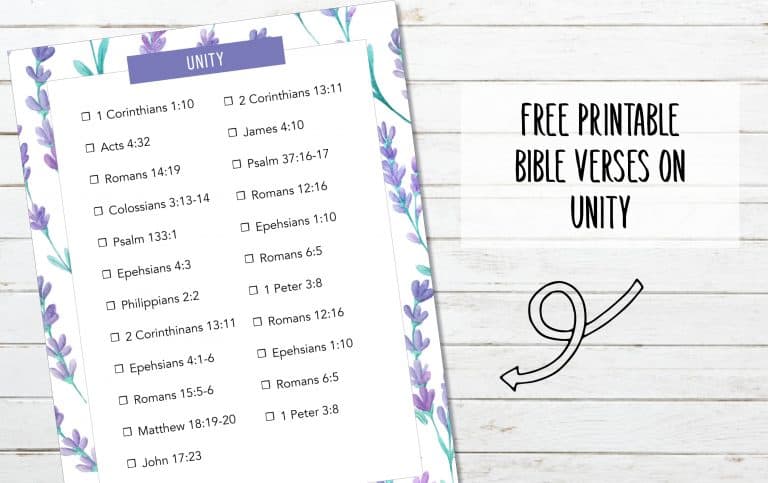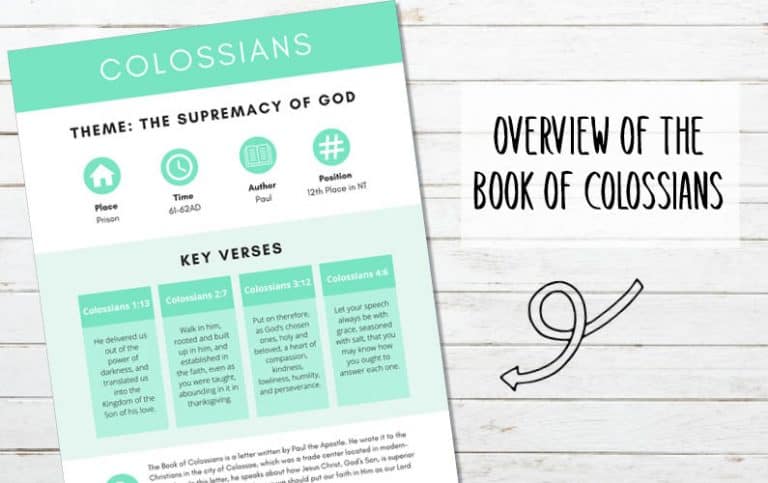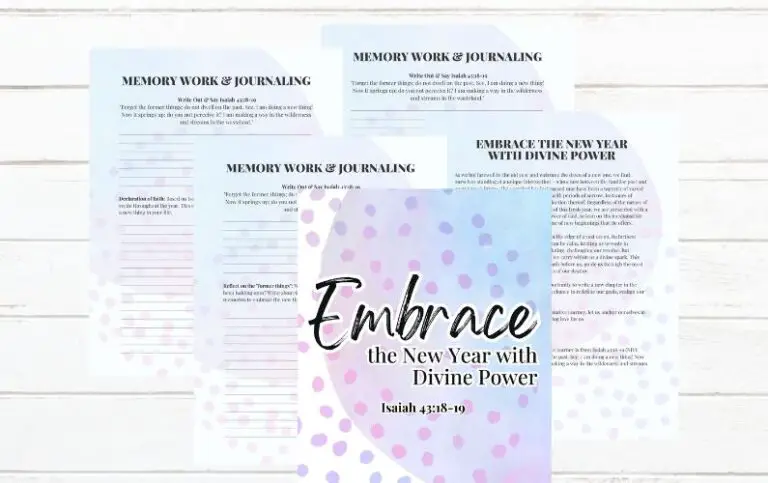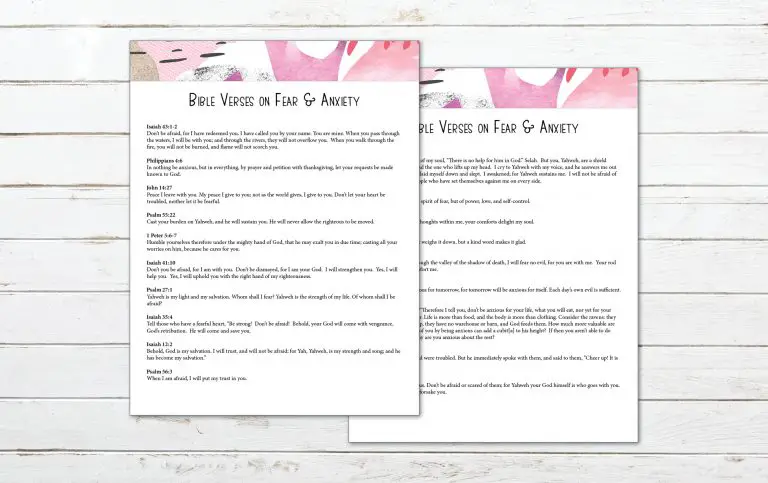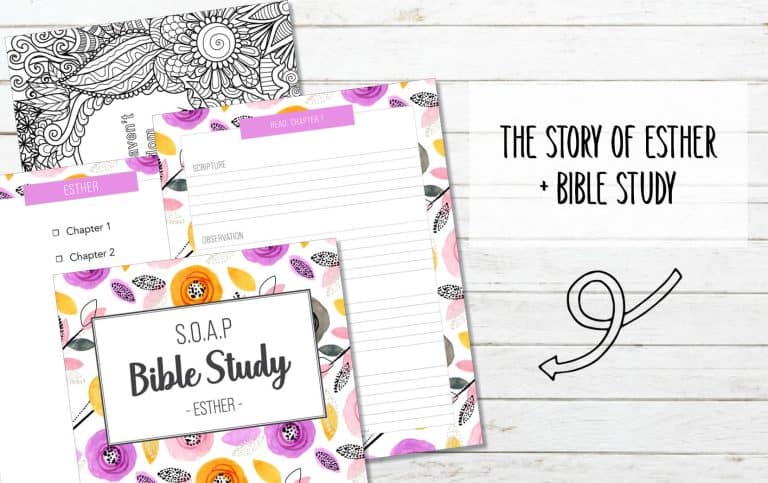As believers we know it is important to spend quality time with God in prayer and reading the Bible.
But knowing we need to do it doesn’t help us to understand how we should do it.
How do I get the most out of studying God’s Word?
Where do I start? What method should I use?
There are many methods that you can try, and what works for one may not work for another.
Why not try a couple of the below suggestions and find which one suits you best.
But before you do that, lets look at what Bible study is and why we should do it.
WHAT IS BIBLE STUDY
It is as it says, Bible study is studying and analysing the Bible.
It involves taking time to read and learn about the Bible, what it means, and how it applies to our lives.
The Bible has much to teach us, about history, about God, about ourselves and the more we learn about it the more we realize how much more there is to learn.
WHY DO WE STUDY THE BIBLE
There are many different reasons people have for studying the Bible.
Some approach it from a purely academic perspective, and as a record of history.
Others may be seeking to find truth, or looking for answers, or, looking to find comfort, strength and hope during difficult times.
As believers, we study the Bible, not just for the reasons already mentioned, but as a means of growing in our faith.
It is a way of getting to know God better and to enrich our relationship with Him.
Just as with any relationship, spending time with a person is key to growing a healthy connection.
Spending time with God, in His Word is essential for knowing Him better, and understanding what it means to be a follower of Jesus.
BIBLE STUDY METHODS
There are many ways to study the Bible, and many methods used by different people.
The key is to find the method that works for you.
Try a few different methods and see which one you feel the most comfortable with and which one maximises your time spent studying the Bible.
The following are a some suggested methods for you to try:
SOAP
SOAP is a simple acronym which stands for Scripture, Observation, Application, Prayer.
It is an easy to remember 4 step process for studying God’s Word.
- Scripture – read and write out the Scripture you are studying
- Observation – meditate on what you have read and ask God to show you something from His Word
- Application – ask God to show you how you can apply His truth to your life
- Prayer – write out a prayer that reflects what God has shown you
The SOAP method is a very popular one, and one which I have used myself. If you would like to know more about the SOAP method click here to read more.
TOPICAL
Doing a Topical Bible study involves studying a specific topic in the Bible.
It could be studying a word or phrase, a thought or a person, anything really where you want to follow a theme or a thread throughout Scripture.
Choose your topic and start researching. Using a Bible dictionary or concordance can help you get started and many Bibles have study tools and footnotes that can also be helpful.
Make observations and ask God to show you how you can apply the truth of what you learn to your own life.
If you would like to read more about how to do a Topical Bible study click here.
CHARACTER STUDY
The Bible is full of the lives and stories of many people and there is much we can learn from them.
When doing a character study, you choose a person you want to learn more about and start researching them.
Start by writing down all the references in the Bible that refer to that person.
Using a good Bible dictionary and concordance can be helpful in your research.
Meditate on what you discover, write down your discoveries, look at what you can learn from the person, and ask yourself what lessons you can apply to your own life.
READ THROUGH THE BIBLE
There are many Bible reading plans available that can lead you through God’s Word in a year, or in two or three years.
You can choose to read the Bible from cover to cover, or you can read through it chronologically, where you follow through the Bible along an historical timeline.
There are also Bible reading plans which give both an Old Testament and a New Testament passage to read each day.
Reading through the Bible in a year can give a great overview to Scripture and, especially when reading chronologically, can give an understanding of the timeline of the history of the Bible.
CREATIVELY
Studying the Bible creatively can be a fun way to approach Scripture.
It’s a different way of approaching Scripture which can open up and allow us to see God’s Word in a different light.
God’s Word is so exciting, but sometimes we can get in a rut with how we approach it, especially if we do things the same way all the time.
Try mixing things up a bit, put some creativity into your Bible study, it can be a very relaxing way to spend time in God’s Word.
You can read more about creative ways to study the Bible by clicking here, but here are a few to get you started:
- Listening to Scripture
Audio versions of the Bible are readily available and a convenient and easy way to soak up the Scriptures by listening to them and it can be done anywhere anytime.
Scripture Journaling involves keeping a journal where you record the Scripture you are reading along with words, truths, verses and your thoughts about the passage.
Scripture Journaling is a great way to soak deeply in God’s Word and you can read more about it by clicking here.
- Writing Out Scripture
Choosing a passage of Scripture and writing it out is a great way to slow down and focus on what you are reading and writing.
Color coding your Bible is a fun way to engage with Scripture.
You can use colored pencils, felt pens or highlighters to color your Bible, highlighting topics and themes throughout.
Color coding is a fun and practical way to enjoy Scripture and if you would like to know more about it click here to read more.
- Draw or Paint Scripture
Expressing your thoughts and feelings about Scripture with drawings and paintings is a beautiful way to engage with God’s Word and can be a very relaxing experience.
- Coloring In
Coloring in is very relaxing and a lovely way to engage with Scripture as you color words or verses, allowing time for you to meditate on them as you go. I have lots of Scripture coloring in that you can download for free from my website. Click here to check out some of them.
- Use Stickers
Stickers are another fun way to enhance your Bible study time. They can be used to highlight verses, passages, and truths God is showing you. The can be used on their own or you can use them along with Color Coding your Bible and Scripture Journaling.
INDUCTIVE BIBLE STUDY
The Inductive Bible Study method is all about making observations, interpreting those observations, and then applying them to your life.
When making observations ask yourself questions like, who is the author, when was it written, why was it written, what was the history around that time. You can write out the passage in your own words, which will help you to have a better understanding of what you are reading, and make a note of anything you may not understand or would like to follow up on. Make use of the cross references to gain further understanding as you seek to interpret the passage.
Take what you have learned and make it personal by applying the lessons to your own life and write out your application.
APPLE
The APPLE method of studying God’s Word was created by Arabah Joy and requires you to read through the passage of Scripture a number of times. The first time read through just to get an overview of what is being said. Read through the passage again a few more times and with each reading look for these:
- Attributes of God on your second reading
- Promises of God on your third reading
- Principles for Life on your fourth reading
- Lessons Learned on your fifth reading, and
- Examples to Follow on your sixth reading
It is a simple way of dissecting a passage and making observations about the passage.
BY BOOK
Tackling a book of the Bible to study may seem intimidating at first, but it can be very rewarding. It is a very different approach from following a topic and can allow you to go much deeper into the Word. It will require several readings of the book to get the most out of it. It will be helpful to do some research into the background of the book and the context in which it was written.
Resources such as commentaries, Bible dictionaries and concordances can be helpful but don’t let them take the place of your own observations. As you read through the book you will want to make an outline. Often your Bible will have chapter and section headings which can assist you. Look for key words and phrases, themes and ideas and choose some key verses that stand out to you.
Write down the things you learn along the way and make an application to your life. You may even like to try committing some of your key verses to memory.
GROW
The GROW method was created by Artistic Hands of Faith and is an acronym of Greet, Read, Observe, and Write.
- Greet by inviting God to be a part of your Bible study through prayer
- Read through the passage of Scripture at least a couple of times, to gain an understanding of it
- Observe by making observations about the things you read and anything that stood out to you
- Write out the Scripture and any observations you made and then write a prayer to reflect what you have learned.
HEAR
Another acronym for studying the Bible is HEAR, created by Ladies Drawing Nigh, and it stands for His Word, Examine It, Apply It, and Respond in Prayer. This method starts with prayer, asking God that you will hear His voice.
- His Word is next and requires you to read through the passage of Scripture a couple of times and then recording the verse, or verses, that spoke to you
- Examine It where you observe and record two or three facts that stand out to you. For this step the Who, What, When, Where, Why and How questions can be helpful
- Apply It where you personalize what you have learnt whether it’s a command to obey, a sin to confess, a promise to claim, and write it down
- Respond in Prayer is where you can respond to God in prayer and talk with Him about what you have learned
REAP
REAP stands for Read, Examine, Apply, Pray and is not dissimilar to the HEAR method.
- Read the passage and underline anything that stands out to you
- Examine the passage by spending time reflecting on what you have read and asking yourself questions about the passage and writing down one or two key verses or points from what you have read
- Apply where you can ask yourself, “What is God saying to me today”? “How will I live or act differently because of what I have learnt”? and “Is there anything in my life that I need to change as a result of what I have learnt”?
- Pray to finish your time asking God to help you to live out what you have learnt
POWER
The POWER method stands for Pray, Observe, Write, Envision, Respond and was created by Kait at Love Mother Blog.
- Pray before reading through the Bible passage you have chosen
- Observe and ask yourself what does this teach me about God and, or, about myself
- Write out a verse from the passage that has meaning to you
- Envision how this can apply to your life
- Respond to God in prayer, talking with Him about what you have learned
PRAISE
In this method PRAISE stands for Pray, Read, Assess, Investigate, Submit, Express.
- Pray and ask God to show you what to study, ask Him to open your eyes and your heart and to enlighten you
- Read the book or the passage and read it in the context of what is being said and who it is being said to
- Assess and mull over the passage, the words and phrases, thinking through what they mean and how they can apply to your life
- Investigate, this is where you can dig a little deeper, looking into the history, the cultures and traditions and the background of the passage, looking up words and their meanings
- Submit your heart, your thoughts, your whole self to God and allow His Holy Spirit to mold you to be more Christ-like
- Express and live out what you have learned so the world around you can see by your words and your life that you are a follower of Jesus
WORD
WORD stands for Write, Observe, Relevant, Declare and was created by Erika at A Symphony of Praise.
- Write out the passage you are studying and then read through it a couple of times
- Observe the passage and ask yourself questions about it using the 5 W’s of Who, What, Where, When and Why
- Relevant is looking at how this passage relates to you, how can you make it personal, what instructions or teachings can you apply to your own life
- Declare and pray God’s Word over your life, claim His promises and declare the changes you are going to make in your life from the applications you have made
FEAST
FEAST was created by Asheritah at One Thing Alone and it stands for Focus, Engage, Assess, Spark, Turn.
- Focus your heart and mind on God, asking Him what He wants you to learn
- Engage by reading the passage and writing it down, making observations as you do and asking yourself what it is saying
- Assess the main idea of the passage and ask yourself what it meant to its original audience
- Spark is asking yourself how this applies to you and asking the Holy Spirit to spark a transformation in you
- Turn your heart and mind toward God and ask Him how you should respond
REST
REST stands for Read, Engage, Savor, Takeaway and was created by Kaylene Yoder.
Read a short passage of Scripture and spend time digging deeper into what it is saying. Engage with the passage by writing it out and underlining any verses that stand out to you or that you feel a connection to
Savor the passage by asking yourself questions about it, and looking into the background, history and context of it. Look up meanings and definitions of words and phrases to give you a better understanding
Takeaway is the main lesson you want to takeaway from your study time. A lesson or revelation that you want to take with you into your day to encourage yourself and to use to encourage others.
Whichever method you embrace be sure to begin with prayer.
Using resources such as Bible commentaries, Bible dictionaries and Bible concordances are helpful, but try using them as a supplement after you have made your own observations and applications, don’t allow them to overshadow what God may be saying to you.
Always look to apply the Word of God, as James 1:22 encourages us to be doers of the Word and not hearers only.
Enjoy studying God’s Word and be blessed!
